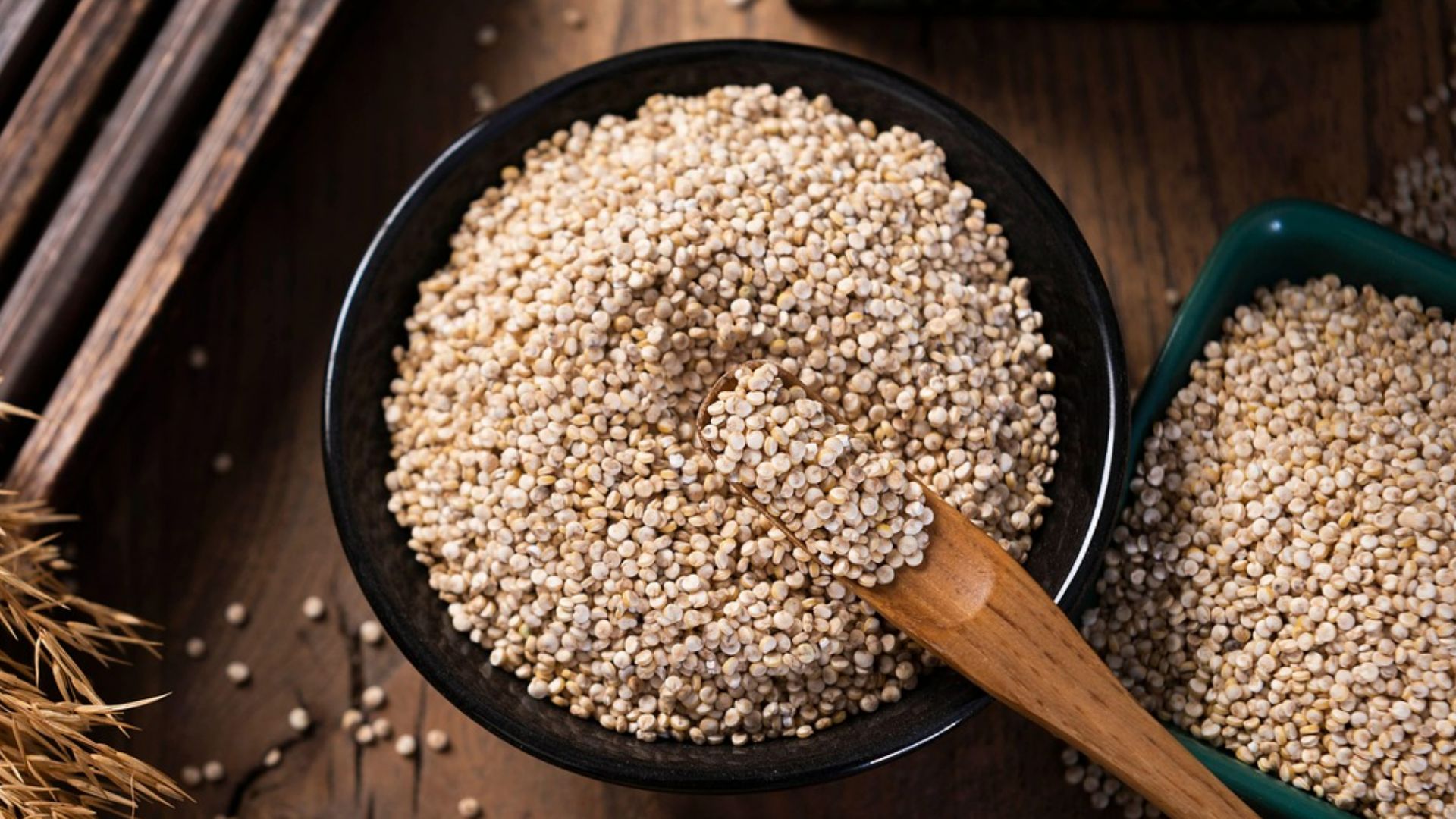Looks Easy? Think Again
When reading out loud, brace yourself. English is full of surprises, and some words feel like verbal traps. It's either they've got too many letters or hidden sounds or some other illogical thing nobody warned you about. Even the most polished speakers stumble on them sometimes. Ready to master the 20 toughest words?
1. Worcestershire
Are you pronouncing the condiment well? Despite only three syllables—"WUSS-ter-sheer"—this sauce from the English town of Worcester sends tongues spinning. British English drops entire syllables like hot potatoes. Americans tend to add letters while Brits vanish them mid-sentence.
2. Colonel
It's spelled "colonel" but pronounced "kernel." Why? We can only blame history. English borrowed it from French "coronel," then later adopted the Italian spelling. Somehow, both versions fuse into one word, and when you read one thing, others will hear something else.
3. February
Do you say the first "r"? Most folks don't. It's technically "Feb-roo-ary," but "Feb-yoo-ary" dominates in speech. The silent treatment that "r" gets is totally accepted in everyday English. Even dictionaries list both as correct. Grammar sticklers may wince, though.
 Photo By: Kaboompics.com on Pexels
Photo By: Kaboompics.com on Pexels
4. Anemone
Finding Nemo did this one dirty. Remember the scene? "Annemone... amamumone..." This squishy sea creature's name comes from the Greek word for "windflower." The repeated vowels and fast rhythm make it a tongue twister, even for marine biologists. Phonetically, it's "uh-NEM-uh-nee."
 Sebastian Pena Lambarri on Unsplash
Sebastian Pena Lambarri on Unsplash
5. Mischievous
This one causes chaos because people love adding a fake syllable. It's not "mis-chee-vee-us." That extra "i" sound doesn't exist. The real deal is “MIS-chuh-vus.” Being mispronounced for so long, we have normalized it. Dictionaries note the wrong version as "nonstandard," but it's still common.
6. Quinoa
Here is a protein-packed seed that has been grown in the Andes for over 7,000 years. But when it hit Western menus, pronunciation panic followed. "KEEN-wah," not "kwin-oh-ah." That comes from Quechua, an Indigenous South American language. Nutritional powerhouse, yes. Verbal curveball? Absolutely.
 we-o_rd35ghczdq1090c5m on Pixabay
we-o_rd35ghczdq1090c5m on Pixabay
7. Gyro
Lunch line showdown: "Jai-roh" or "yee-roh"? Greeks say "yee-roh," like "hero," with a "yee." This rotating meat stack's name comes from the Greek word "gyros," meaning "circle" or "turn." Mispronounce it in Athens and expect a long stare over tzatziki sauce.
8. Sherbet
There's only one "r" in this frozen dessert. Just one. Still, Americans often say "sher-bert" with a rogue syllable. That extra "r" likely came from blending it with "sorbet" or just plain habit. Technically, sherbet contains dairy; sorbet doesn't. Different desserts, but equally mispronounced.
 Prayitno / Thank you for (12 millions +) view from Los Angeles, USA on Wikimedia
Prayitno / Thank you for (12 millions +) view from Los Angeles, USA on Wikimedia
9. Pseudonym
This literary trickster starts with a silent "p" and ends with writers hiding behind it. "SOO-duh-nim" is the correct pronunciation despite its confusing look. "Pseudo," the Greek word for false, and "onym," for name, birthed this word. It means a pen name or an alias.
10. Espresso
It's not "expresso," though that slip happens everywhere, even in high-end restaurants. Espresso hails from Italy, dating back to 1901, when Luigi Bezzera patented a machine that forced hot water through coffee grounds. That pressure created "espresso," meaning "pressed out." The pronunciation is "eh-SPREH-soh."
 Chevanon Photography on Pexels
Chevanon Photography on Pexels
11. Edinburgh
Could it be "Ed-in-burg"? Logical, but nope, it's "Ed-in-bruh," with a soft, swallowed ending. Scots compress syllables when they speak, and this historic capital doesn't play by spelling rules. It's about local rhythm, and trying to imitate it will humble you fast.
12. Nguyen
This is Vietnam's most common surname—almost 40% of the population has it. It's "win" or sometimes "nuh-win," depending on regional Vietnamese dialects. English phonetics simply can't capture its flow. That "Ng" start? English doesn't like it, so many avoid saying it altogether.
 Presidential Press and Information Office on Wikimedia
Presidential Press and Information Office on Wikimedia
13. Cache
We're sure you've seen this on your devices. It means a place to store data temporarily. Once it's full, it can slow your device down. Borrowed from the French, it originally meant "to hide." The right way to pronounce it is "cash," not "catch" or "cash-ay."
14. Açaí
There is no "kai" or "kee" in that trendy purple bowl you love. It's "ah-sah-EE." The açaí berry is native to the Amazon rainforest and has roots in Portuguese. The accent marks on the second and last letter also control the pronunciation.
15. Coup
The word coup looks like it rhymes with "soup," but it doesn't. The "p" is silent, and it's just "coo." In French, it originally meant "strike," but today, in English, we use it when referring to government overthrows or surprise takeovers.
16. Orangutan
It's "oh-RANG-uh-tan," and the name comes from Malay: "orang" (person) and "hutan" (forest). Forest person. That makes sense, right? But somehow, "orangutang" became common in English, probably from cartoons. These creatures are among our closest relatives, yet we can't seem to get their collective name right.
17. Prerogative
Most people say "per-ogative." The first "r" gets dropped like it never mattered. But officially, it's "pruh-rog-uh-tiv." This word means a right or privilege exclusive to a person or group, and its legal tone makes it popular in politics and debates.
18. Siobhan
This Irish girl's name looks intimidating to anyone unfamiliar with Gaelic spelling. It looks like letters to unscramble and is pronounced "Shi-vawn." The "bh" makes a "v" sound, which is common in Irish. It's a beloved traditional name, but one you hear misread at graduations.
19. Leicester
"Lester." Three letters had to go. English town names are notorious for ignoring how they're spelled. This town is in Leicestershire (yep—"Lester-shur"). Locals don't even flinch when outsiders say "Lie-chest-er." But get it right, and they'll assume you have history there.
20. Phlegm
No word sounds as gross as it looks—except maybe mucus. This one is pronounced "Flem." The "ph" gives it the "f," and the "g" does absolutely nothing. It's a medical term, sure, but it's also used to describe that stuck-in-your-throat feeling.






















